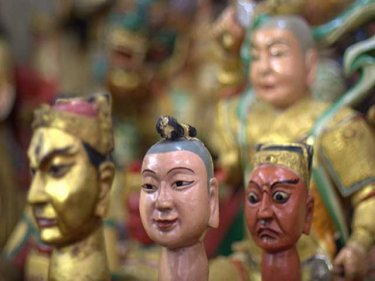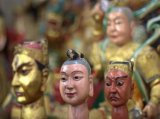Estimates of the impact vary from a lot, to a little. If bookings for China's National Day Golden Week - which runs from October 1-7 - are a guide, Phuket tourism could be set to suffer a downturn.
China's new policy from October 1 will forbid extra charges for tour packages beyond the original price, which means that tourism on Phuket is bound to change.
The despised ''Zero Baht Tours'' - based solely on extra commissions - should be brought to a quick end.
Travel agencies in China will have to lift their prices because from now on, they only get a one-off payment. The move has lowered demand for tour packages quite significantly in China, according to reliable sources.
As a result of the new law, prices of tour packages are rising 20-30 percent on average, and as high as 50 percent at agencies heavily dependent on kickbacks.
''We used to have over three or four thousand tourists sign up for our Thailand package during the National Day Golden Week,'' Wu Bin, Deputy General Manager of New Generation Travel & Trade Co, told cntv.cn. ''This year we only have about three or four hundred.''
The hope is that those cuts won't hit Phuket travel in the same way. But Thailand's travel industry is forecast by some to be hit hard.
Travel agencies that focus on Chinese tour groups have held an urgent meeting to discuss counter strategies.
One Phuket-based resort owner who closely watches China, the President of the Thai Hotels Association (Southern Division), Suchart Hirankanokkul, thinks there could be a positive outcome to the change generated by the new law.
Khun Suchart agreed that the number of Chinese tourists using tour agencies could drop, but says numbers will most likely fall only slightly.
Khun Suchart said any government-imposed decline in Chinese tourists would mean a trend towards something that Phuket wants - a rising number of free spending independent travellers.
From China, the messages being picked up on Phuket remain mixed. The pressure for reform and change is likely to be transferred to the holiday island, where many deals are commission-based, and many commissions are covert - and exorbitant.
The Director of the Thai-Chinese Tourism Alliance Association was quoted as saying: ''In the long term this provides an opportunity for Thailand to regulate itself.
''We can use this chance to improve the tourist experience in Thailand. It's a good thing for both tourists and our tourism industry.''
Based on the experience so far with National Day Golden Week, forecasts of a 40 percent drop once the new travel law takes effect may not be ridiculous.
But the short-term pain may be replaced by long-term gain, with independent travellers replacing package visitors and fairer, transparent prices being applied in place of large and sometimes corruptly obtained commissions.
Liu Xin, deputy general manager of the Shanghai China CYTS Outbound Travel Service Co, told eastday.com that agencies are moving toward more tailored tours, such as packages designed for wealthy young families. Prices of tour packages are going up an average of 20-30 percent, Liu said.
Wang Jue, manager of the Xizang Road outlet of Spring Tour in Shanghai, said about half of people she hears from don't care about rising prices, while the other half are hesitating or cutting travel plans.
Thailand isn't the only destination affected. A seven-minute video of a Hong Kong tour guide berating mainlanders for not spending enough money in shops triggered a huge outcry both in Hong Kong and on the mainland in July 2010.
The guide's licence was revoked and the tour operator fined HK$47,500.
China National Tourism Administration deputy director Du Yili told the South China Morning Post newspaper: ''Both operators and tourists should have a clear understanding of their rights, obligations and responsibilities to cultivate healthy market order.''

















The law is excellent, it means less tourists are ripped off by excessive payments of commissions.
This is a first step into attracting the right Chinese market.
As well a clear indication that the Chinese market is becoming more mature and that the Chinese government is protecting their outgoing tourists if necessary.
wm
Posted by wm on September 30, 2013 12:24